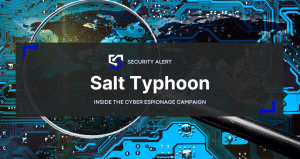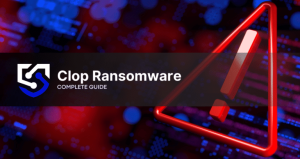When do you need Incident Response Services
Internet threats are becoming more sophisticated, and any business or organization is a potential victim. Digital Forensics & Incident Response specialists combine traditional incident response activities with in-depth digital forensics techniques, focusing on both response and detailed investigation. You may need a DFIR team when these situations occur:
Ransomware or Malware Attack
These are often the most damaging incidents that can encrypt your files or disrupt your systems, demanding immediate attention.
Complex Cyber Investigations
DFIR services ensure evidence is collected, preserved, and analyzed in a manner that meets legal standards and can withstand courtroom scrutiny.
Data Breach or Exfiltration
If sensitive data has been accessed or stolen, an incident response and digital forensics team can help contain the breach, investigate & mitigate its impact.
Insider Threats or Unauthorized Access
Any signs of unauthorized access or unusual network activity could potentially signify a security incident, warranting immediate investigation and response.
Proven Expertise in Incident Response & Digital Forensics
Our seasoned DFIR team combines swift incident response with a thorough digital forensics investigation.
Since 2011, our experts have serviced companies in swift containment, eradication, and recovery. As your dependable incident response service provider, we bolster your business security by offering immediate access to unparalleled expertise and resources during security incidents.
Our DFIR services are designed to meet stringent legal and regulatory requirements. We employ forensically sound methods to collect, preserve, and analyze digital evidence, ensuring it maintains a clear chain of custody and admissibility in court.
What clients say about our Incident Response Services


Comprehensive Incident Response & Digital Forensics Investigation
Threat actors manage to infiltrate systems through various methods, such as exploiting system vulnerabilities, using phishing emails, or taking advantage of weak passwords. Although prevention can avoid cyber attacks, nothing will completely shield your company against them.
Proven Data offers comprehensive Digital Forensics & Incident Response (DFIR) for your business when it needs it. This includes:
24/7 Availability
Our incident response services operate round-the-clock, providing immediate assistance at the first sign of detection of a cyber threat.
Incident Assessment
After detection, we conduct an assessment to determine the severity of the incident and prioritize our response actions.
Containment and Mitigation
Immediate measures are taken to contain and minimize the incident, preventing further damage and its spread.
EDR (Endpoint Detection and Response)
Using endpoint detection and response tools, we monitor and investigate suspicious activities on endpoints to identify potential threats.
Forensic Investigation
In-depth forensic investigation is conducted to gather evidence, determine the root cause, and collect data for legal or regulatory purposes.
Chain of Custody Preservation
Detailed analysis of digital artifacts, file systems, and network traffic. Ensuring all evidence is collected and preserved in a legally admissible manner.
Malware & Network Forensics
Analysis of network logs and traffic to trace the path and methods of attackers. And an in-depth examination of malicious software to understand its behavior and origin.
Remediation
Once the incident is contained and investigated, we take remediation actions to address vulnerabilities, patch systems, and implement security controls to prevent similar incidents in the future.
Data Recovery
If data is lost or compromised during the incident, our data recovery services are engaged to restore the lost or damaged information.
FAQ
Incident response is the process of dealing with a data breach or cyberattack, including how an organization attempts to control the consequences of such an incident. The goal is to effectively manage incidents to minimize damage to systems and data, reduce recovery time and cost, and control damage to brand reputation.
Best practices for incident response include having an incident response plan in place, training employees on security best practices, using DLP software, monitoring user activity, and conducting regular security audits.
Incident response is important because it helps organizations minimize losses, mitigate exploited vulnerabilities, restore services and processes, and mitigate the risk of future incidents. By responding quickly to incidents, organizations can minimize the damage caused by a cybersecurity incident.
IR and IRR are both related to cybersecurity, but they have different meanings and applications.
Incident Response (IR):
- Refers to the process of responding to a cybersecurity incident or breach.
- Involves identifying, containing, eradicating, and recovering from the incident.
- Is a reactive approach to cybersecurity that focuses on minimizing the damage caused by an incident.
Incident Response and Remediation (IRR):
- Refers to a customized, industry-informed mitigation plan that a company should closely follow during a breach scenario.
- Is a proactive approach to cybersecurity that focuses on preventing incidents from happening in the first place.
- Involves identifying potential vulnerabilities, implementing security controls, and developing a response plan.



